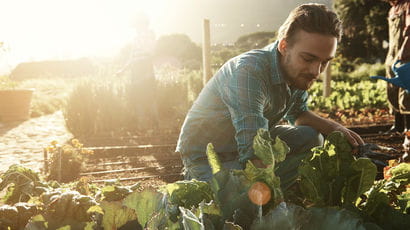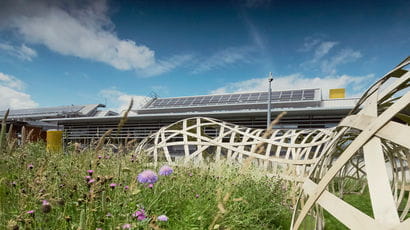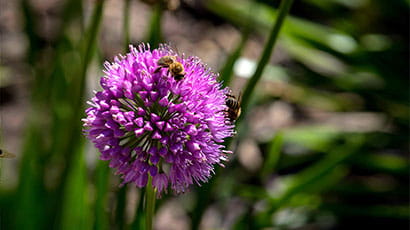Reduce, reuse and recycle
The circular economy at UWE Bristol.
The circular economy
At UWE Bristol, we aim to run our operations based on a circular economy model. A circular economy reduces waste and pollution by encouraging reuse and recycling.
This approach will help us to:
- minimise our impact on the environment
- increase biodiversity on our campuses
- reduce costs of buying new and raw materials.
Based on a move towards renewable energy and materials, a circular economy is good for business, people and the environment.
Our commitment to sustainable initiatives
In October 2025, we became the first UK university to sign the Repair and Reuse Declaration as a whole institution. The declaration is a call to legislators and decision makers to tackle climate change through greater repair and reuse support.
UWE Bristol signs Repair and Reuse DeclarationGet involved
We're building a culture of repair and reuse – helping reduce waste and supporting with the cost of living through practical, community-led solutions.

Repair café
An initiative run by students and community repair volunteers allowing staff, students and the community to get their items fixed for free.

Sustainability Hub
A simple swap system that gives access to affordable, pre-loved items and encourages donation and reuse.

Library of Things
A membership-based scheme providing access to items for home, hobbies, study or practical tasks.

Reuse Marketplace
An initiative to make surplus university furniture, decor and non-IT equipment available for reuse both on and off campus.
Minimising our environmental impact
Our goals
In our Climate and Sustainability Plan we’ve set clear goals to reduce our environmental impact:
- Reduce waste by 10% per person (staff and student) by 2025/26, compared to 2022/23 data.
- Recycle 70% by mass of all waste by 2026.
- Reduce single-use plastics by teaching, research and operations.
- Support the UK Plastics Pact by developing practical, scalable solutions.
Waste and recycling
Key stats for 2023/24
- Total waste (including construction): 2,467 tonnes
- Total waste (excluding construction): 1,253 tonnes
- Recycling rate (including construction): 52.3%
- Recycling rate (excluding construction): 35.6%
Recycling on campus
Information on which items you can recycle on campus and how to recycle them.
Recycling on campusYou may also be interested in

Get involved in sustainability
Help us make a truly sustainable university a reality. Information for staff and students to get involved in positive ways, plus handy tips for greener living.

Carbon, energy and water management
Learn about our carbon, energy and water management plans and projects including our new, 900 bed student accommodation built to the highest sustainability standard of Passivhaus.

Sustainability at UWE Bristol
Sustainability is embedded in our culture, research and teaching. We have already invested heavily in campus improvements and new technology, with plans underway to be carbon neutral by 2030.
